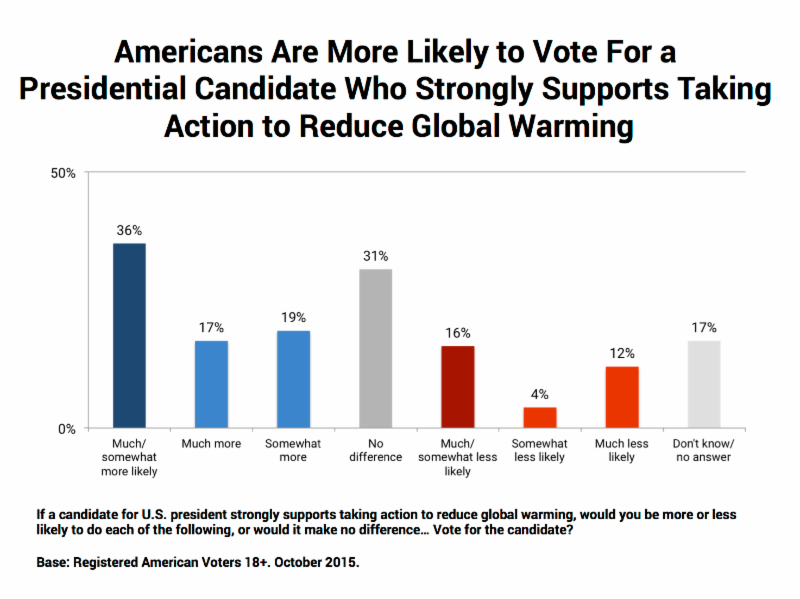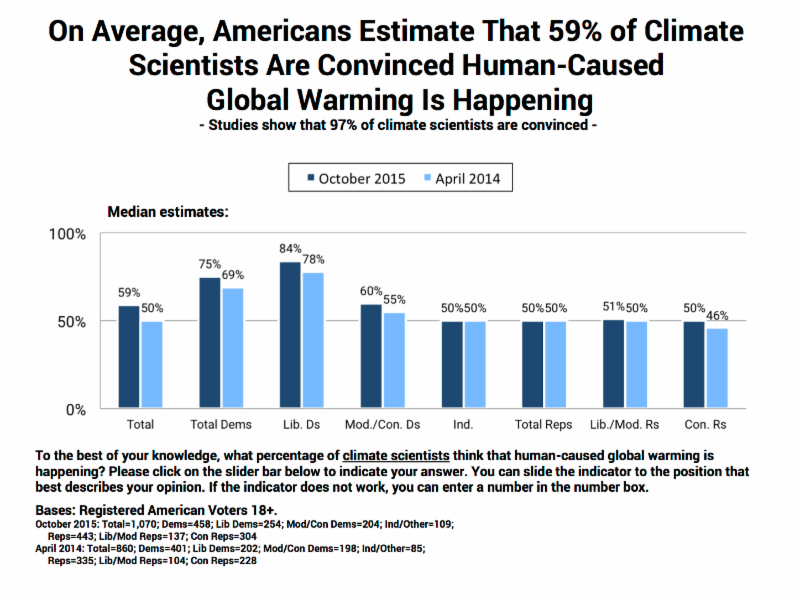A recent survey by the George Mason University’s Centre for Climate Change Communication has found that majority of voters in the United States of America prefer candidates who support actions to address the menace of climate change.
Too often, the debate about climate change in the US is portrayed as one between Democrats and Republicans. In fact, study has shown that it’s not. It is, indeed, a debate between most Americans and conservative Republicans.
GMU’s national survey finds that majority of registered Democrats, Independents and liberal and moderate Republicans want climate action, will vote for candidates who will support it and represent the mainstream of American voters. The survey also finds that conservative Republicans’ views are often different than the rest of American voters.
 For example:
For example:
- Registered voters are more likely to vote for a presidential candidate who strongly supports action to reduce global warming (36% are more likely to vote for such a candidate, 16% are less likely). Only conservative Republicans are less likely to vote for such a candidate.
- Likewise, registered voters are lesslikely to vote for a presidential candidate who strongly opposes action to reduce global warming (43% are less likely, 13% are more likely). Only conservative Republicans are more likely (slightly) to vote for a candidate who strongly opposes action to reduce global warming.
- The 21stUnited Nations Climate Change Conference (often referred to as COP21) recently concluded in Paris, leading to an international agreement to reduce global warming pollution. Prior to the start of the conference, six in 10 Americans (62%) said that it was moderately or more important that the world reach an agreement in Paris to limit global warming. This opinion was most widely held by liberal Democrats – nearly nine in 10 (87%) said it was important to reach a climate agreement in Paris. At least six in 10 moderate/conservative Democrats (68%), Independents (62%), and liberal/moderate Republicans (65%) also thought it was important to reach an agreement. By contrast, only about one in three conservative Republicans (36%) thought reaching an agreement was important.
The survey also finds that the number of Americans who know that most climate scientists think human-caused global warming is happening has increased in the past year and a half.
In a recent study investigating the degree of scientific consensus on climate change, researchers determined that 97% of climate scientists are convinced human-caused global warming is happening. By comparison, American registered voters, on average, estimate that six in 10 climate scientists are convinced (59%), an estimate that has increased since Spring 2014, when Americans estimated that just 50% of scientists are convinced. Democrats’ estimates improved the most (from median estimates of 69% of scientists in Spring 2014 to 75% in Fall 2015), followed by conservative Republicans (from 46% to 50%, respectively).
These findings suggest that efforts to communicate the scientific consensus about human-caused global warming are beginning to pay off.
The report includes many more insights about how Republicans, Democrats and Independents are responding to climate change, including recent positive trends among conservative Republicans.
